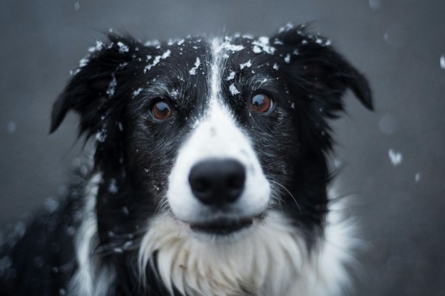When it comes to winter safety in Lincoln City, Oregon, don’t forget about your pets. As you prepare your home and family for the colder months ahead, be sure to make provisions for your furry companions. Exposure to freezing temperatures, icy rain, sleet, and snow can cause discomfort for pets, such as chapped paws and itchy skin. Additionally, winter walks can become hazardous due to the chemicals in ice-melting agents. Follow these tips from ServiceMaster Restore to help keep your pets safe and comfortable during the harsh winter weather.
Pet Winter Safety and Preparedness Tips
Keep Pets Indoors Whenever Possible
During extremely cold weather, avoid leaving your pets outdoors for extended periods. If it’s too cold for you, it’s likely too cold for them as well.
Provide Outdoor Shelter for Pets
If your pets must stay outside, ensure they have a dry, draft-free shelter, such as a doghouse that:
- Is large enough for them to sit and lie down but small enough to retain body heat.
- Has an elevated floor covered with cedar shavings or straw.
- Faces away from heavy winds and has a door flap made of waterproof fabric or plastic to keep out drafts.
Offer Extra Food and Water
Pets that spend time outdoors in the winter need extra energy to stay warm. Provide them with more food, and check their water dish regularly to make sure the water hasn’t frozen. Use plastic bowls instead of metal to prevent your pet's tongue from freezing to the surface.
Use Leashes Near Water
When walking near frozen lakes or ponds, always keep your pets on a leash to prevent them from running onto the ice. If a pet falls through the ice, do not attempt to rescue them yourself. Instead, call 911 or seek help from emergency responders.
Keep Antifreeze Out of Reach
Antifreeze has a sweet taste that can attract animals, but it’s highly toxic. Be sure to store antifreeze safely and clean up spills immediately to prevent poisoning.
Care for Your Pet’s Paws
Chemicals used to melt ice and snow can irritate or harm your pet’s paws. After winter walks, gently wipe their paws with a damp towel to remove any residue. Watch for signs of discomfort, such as your pet lifting their paws frequently or whining, which could indicate their feet are too cold.
Never Leave Pets in Cold Cars
Cars can trap cold air, becoming dangerously chilly for pets left inside. Never leave your pet locked in a vehicle during freezing weather.
Keep Identification on Pets
In the event of separation, a collar or harness with proper ID tags is crucial for reuniting with your pets. Make sure the information on the tags is up to date. Microchips are also helpful, but ID tags offer quicker identification.
 Create a Pet Emergency Kit
Create a Pet Emergency Kit
To ensure your pet’s safety during winter storms or disasters, prepare an emergency kit with the following items:
- Enough food and water to last at least three days.
- Food and water bowls.
- Garbage bags for waste disposal.
- A pet first aid kit.
- Extra collars, leashes, and ID tags.
- Pet carriers for transportation.
- Photos of your pet for identification purposes.
- Copies of vaccination records in a waterproof container.
- Any necessary medications.
- Toys and comfort items for stress relief.
- Litter supplies for cats.
 Plan for Evacuation
Plan for Evacuation
Having an evacuation plan in place is crucial. Assign responsibility for grabbing the pet emergency kit and transporting your pets. If it’s not safe for you to remain home during a disaster, it’s not safe for your pets either. Ensure your evacuation plan includes arrangements for your pets so they won’t be left behind or exposed to harm.
By taking these steps, you’ll be better prepared to protect your family and pets during Lincoln City’s cold winter months. If you need further assistance with disaster preparedness or property restoration, ServiceMaster Restoration Services is available 24/7 to help you recover from unexpected events. Call us at 541-996-2255.





